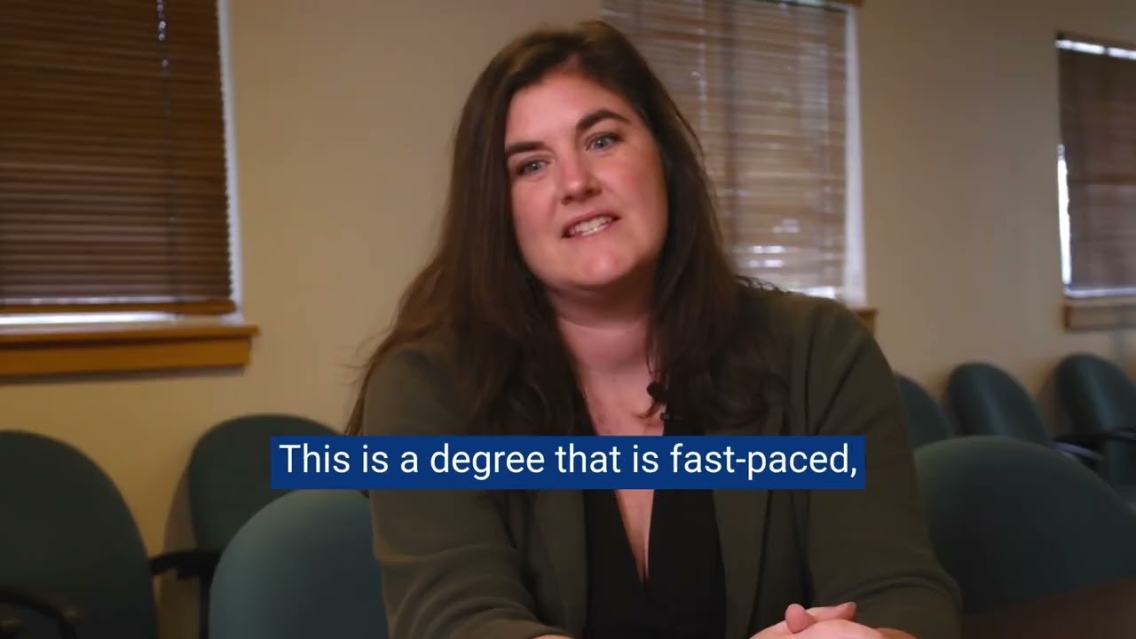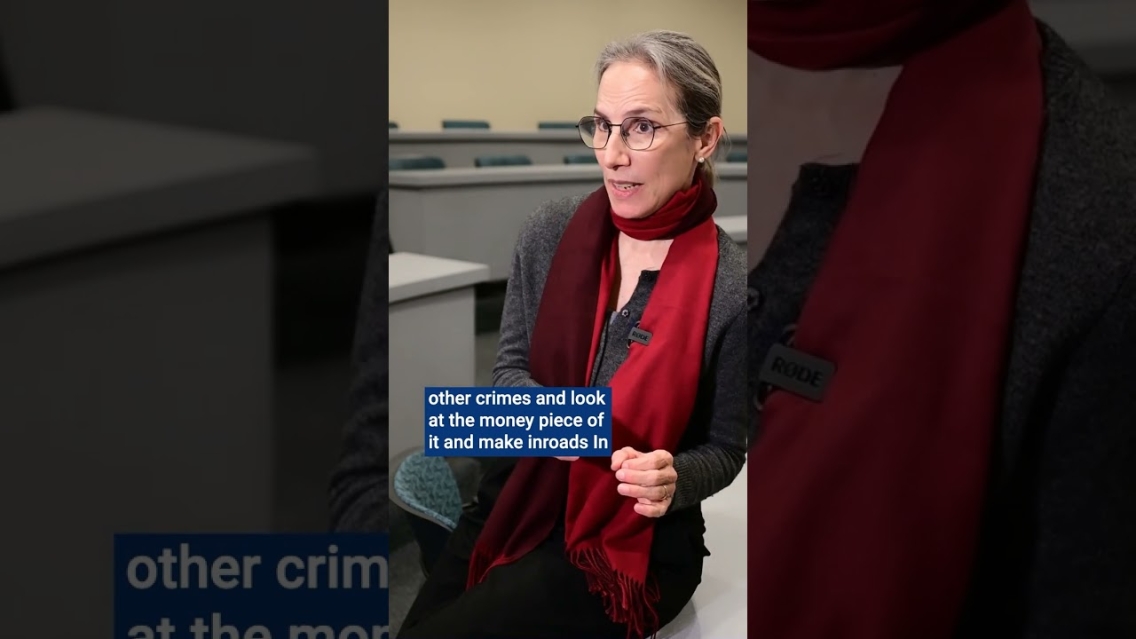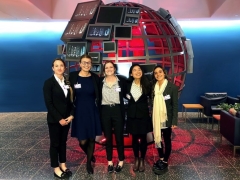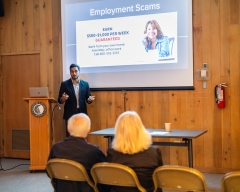Professor Katharine Petrich previously worked for the U.S. Department of Justice, the State Department, USMA Modern War Institute, the Hudson Institute, and the Trans-Border Institute where she researched and documented homicide victims of cartel-related violence.
Meet Katharine PetrichMaster of Arts in Threat Intelligence
In August 2025, Middlebury’s Board of Trustees decided to close all in-person programs and two online programs at the Middlebury Institute. Spring 2026 was the last intake for this program.
Alternative Programs for Prospective Students
- The Online MS in Cybersecurity will continue to enroll students.
- Programs accepting new students.
Degree Program
Our Master of Arts in Threat Intelligence gives you the latest knowledge and tools to effectively address cybercrime and espionage, sanctions evasion, money laundering, corruption, and other financial crimes. Gain professional experience through real-world projects with this STEM-designated degree that can be completed in 12 months.
What is Threat Intelligence?
Threat intelligence is the detection, deterrence, and prevention of a broad range of threats that can impact a state or organization’s operations, assets, and overall security. Threat intelligence involves gathering, analyzing, and applying information about various physical, geopolitical, economic, and social threats using a wide range of qualitative and quantitative methods.
Overview of the MA in Threat Intelligence
Program chair Katharine Petrich highlights how this degree will prepare professionals to work in this exciting field.
Transform Your Career
Advising
Your program’s dedicated career advisor will work with you to clarify your career objectives, communicate your strengths, and assess your career readiness. They will help you craft your resumes, cover letters, and online presence, developing your professional network to access the hidden job market. You’ll learn how to interview effectively and negotiate offers. Your advisor will personalize your strategy to align with your unique background and advance your career goals.
Practical Experience
Our graduates are often hired before they complete their program, leveraging real-world projects from their classes and internships to showcase their relevant experience. At the Middlebury Institute, you will not just learn about the “dark web” but you will actively chase crypto wallets.
- Our research centers and initiatives offer paid graduate research assistantships, summer internships, full-time employment, and hands-on learning opportunities.
- Your practicum is a graduate-level internship in the U.S. or abroad.
- Our Middlebury in DC office provides the entire Middlebury community with a wealth of resources.
- The annual Career Exploration Week in the nation’s capital gives you facilitated and direct access to D.C.-based employers.
- Our large and influential alumni network in Washington, D.C., and other centers of global security are eager to mentor and help you prepare for your next steps.
Careers
You’ll be prepared to work in relevant federal, state, and local government entities, private sector intelligence, consulting, banking, tech, and intergovernmental organizations. Our graduates find meaningful careers at organizations like the UN Office on Drugs and Crime (UNODC), INTERPOL, the FBI, Pinkerton, CipherTrace, KPMG, Google, META, and HSBC.
Our alumni are in high demand and many are earning $100K+ within a year of graduation.
Curriculum
Our interdisciplinary curriculum covers the full spectrum of contemporary threats, while also emphasizing specific skills, with significant real-world opportunities for you to apply your learning. Build your expertise in:
- Cyber threat analysis
- Quantitative data management and analysis (Python, SQL)
- Data analysis and visualization
- Open source intelligence (OSINT)
- Analyzing satellite imagery
- Blockchain analysis
- Dark web research and sleuthing
- Social media exploitation
- Strategic communications
See curriculum for more details.
Language Studies
If you plan to study a second language as part of your degree program, you should pursue our MA in Nonproliferation and Terrorism Studies (NPTS). You can take most of the Threat Intelligence courses in the NPTS degree and study a second language.
Faculty: Professors and Practitioners
Our faculty are regularly featured in the media for their groundbreaking work. They are active practitioners and leading experts in the field, including former intelligence officers, cybersecurity specialists, and globally recognized academic researchers.
While other graduate schools rely on teaching assistants, at the Institute you will have direct access to faculty and collaborate with them on research and projects. They are genuinely committed to your success and will become your mentors and colleagues throughout your education and career.
-
-
Professor Moyara Ruehsen serves on an international task force that combats money laundering. She also consults for the U.S. government, multilateral organizations, and the private sector on threat financing.
Meet Moyara Ruehsen -
Phil Murphy is a public policy expert and bridges the gap between numeric and descriptive research (mixed methods). He directs the Mixed Methods, Evaluation, Design, and Analysis (META) Lab—the data and analytics hub of the Middlebury Institute.
Meet Phil Murphy -
Professor Karen Nershi’s research examines international security and cooperation challenges in cybersecurity. She won the Perry World House Foreign Affairs Emerging Scholars Policy Prize for her research on ransomware.
Meet Karen Nershi
Customize Your Threat Intelligence Degree
Our flexible curriculum means you can customize your degree:
- STEM designation allows expanded career opportunities for international students and scholarships for U.S. students.
- Put theory into practice through a semester-long practicum in the field (in the U.S. or abroad).
- Complete your degree in 12 or 16 months.
- Focus your coursework on financial crime, WMD proliferation, and/or terrorism.
- Our partnership with the Naval Postgraduate School (NPS) gives you access to courses with the Department of National Security Affairs and Department of Defense Analysis.
- Student teams regularly enter the Cyber 9/12 Strategy Challenge, which combines interactive policymaking activities with competitive scenarios to analyze cybersecurity threats.
A Career That Makes A Difference
Fighting cyber and financial crime makes a meaningful difference in the lives of people around the world. With our training, you can help prevent human trafficking, exploitation of children, corruption, and terrorism.
Related Programs
The MA in Threat Intelligence is related to several other programs at the Middlebury Institute:
- MA in Nonproliferation and Terrorism Studies (NPTS): Focus on WMD nonproliferation and counterterrorism while developing professional communication skills in a second language in this four-semester, in-person degree program.
- Online MS in Cybersecurity: Analyze cyber threats in this part-time, asynchronous, online degree program.
- Introduction to Cybersecurity Communications: Learn to convey critical information about cyber threats in this five-to-six-hour, self-paced, asynchronous, online course.
- Threat Intelligence specialization: This specialization is available to students currently enrolled in other Middlebury Institute degree programs.
Research and Practice
Build valuable professional experience while earning your degree. We offer paid graduate research assistantships and events at our world-renowned research centers and initiatives including:
- The Cyber Collaborative explores the implications of the cyber domain for national and international security and other policy concerns.
- The James Martin Center for Nonproliferation Studies (CNS) is the largest NGO in the world devoted to curbing the spread of nuclear, biological, and chemical weapons.
- The Center on Terrorism, Extremism, and Counterterrorism (CTEC) conducts in-depth research to provide private and government organizations with an understanding of and responses to terrorism threats.
- The Mixed-Methods Evaluation, Training, and Analysis (META) Lab addresses the growing need for data-savvy professionals across a broad range of fields.
- The Monterey Initiative in Russian Studies enables students with advanced Russian language skills to professionalize their interest in Russia and Eurasia.

Cyber Collaborative
The Cyber Collaborative is a focal point for activities at the Middlebury Institute that explore the implications of the cyber domain for national and international security and other policy concerns.
Featured News
Read AllMiddlebury Institute Will Host First-Ever West Coast Edition of International Cyber Competition
| by Caitlin Fillmore
The Middlebury Institute has partnered with the Atlantic Council to host undergraduate and graduate students in November 2025 for a cyber competition. Participants will analyze and respond to a fictional cyber crisis during the weekend event.
Field Work: Students Develop Workshops to Help the Community Avoid Scams
| by Caitlin Fillmore
Students, seniors and veterans learned how to avoid scams through an educational series developed by financial crime intelligence students at the Middlebury Institute.
New Master’s in Threat Intelligence Prepares Professionals to Tackle Complex Global Security Challenges
| by Sierra Abukins
The 12-month, STEM-designated program offers hands-on training in cyber threat analysis, financial crime investigation, and emerging security challenges, preparing graduates for a wide range of roles, especially in the private sector.
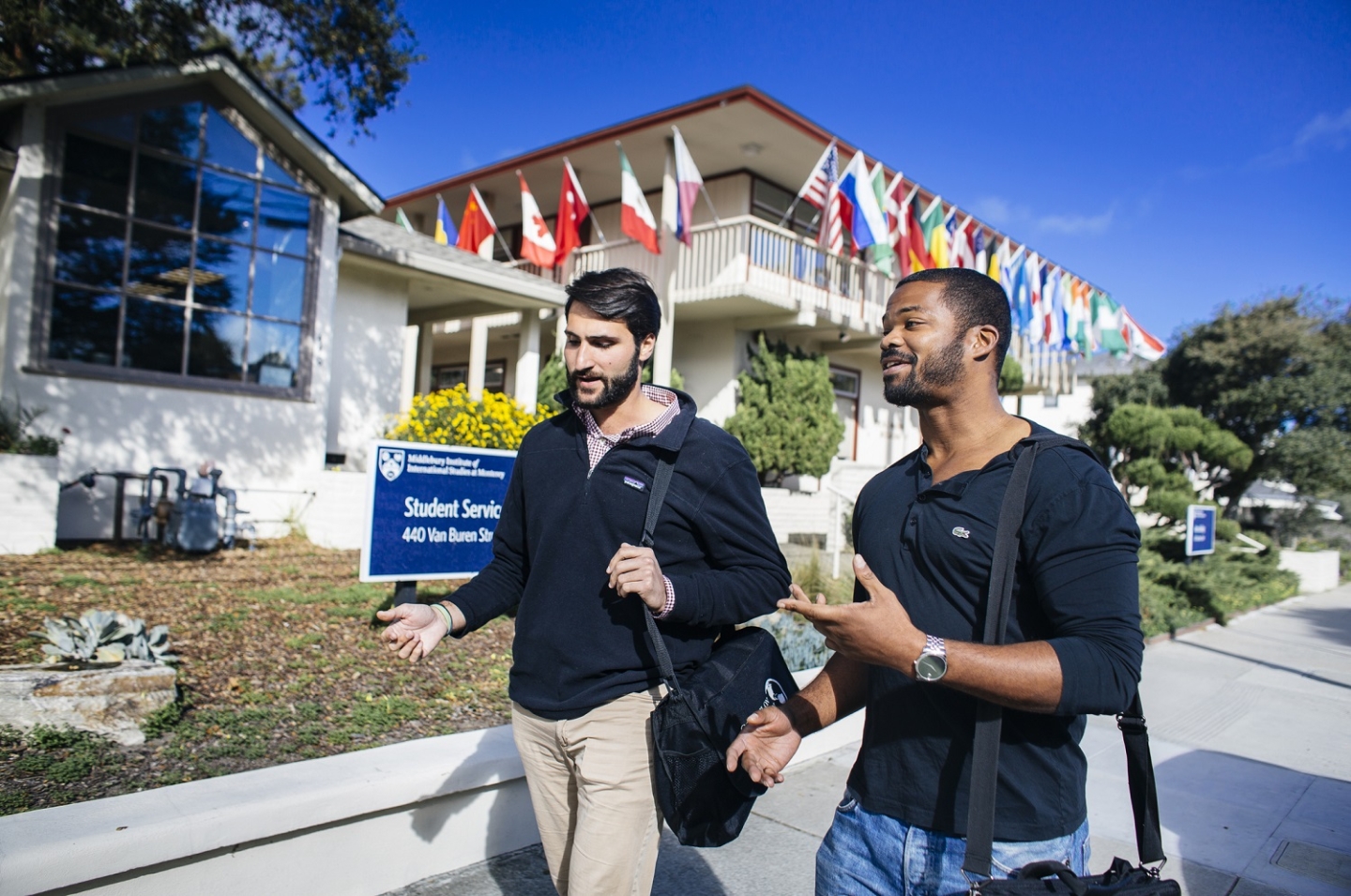
Our graduates find rewarding careers in the intelligence community, private sector intelligence, consulting, banking, financial analytics, risk, tech, energy, transportation, and government organizations.

